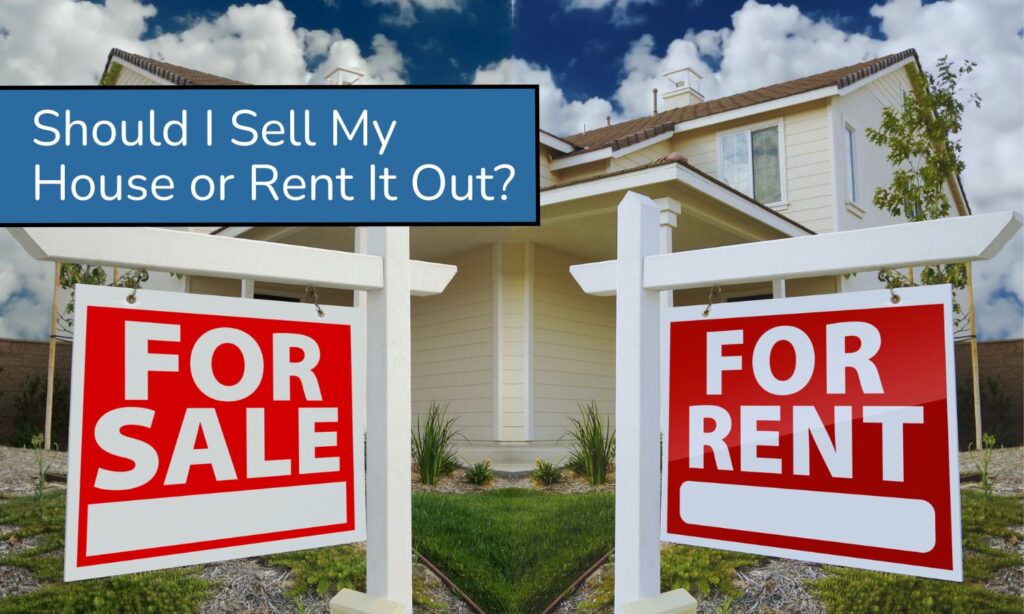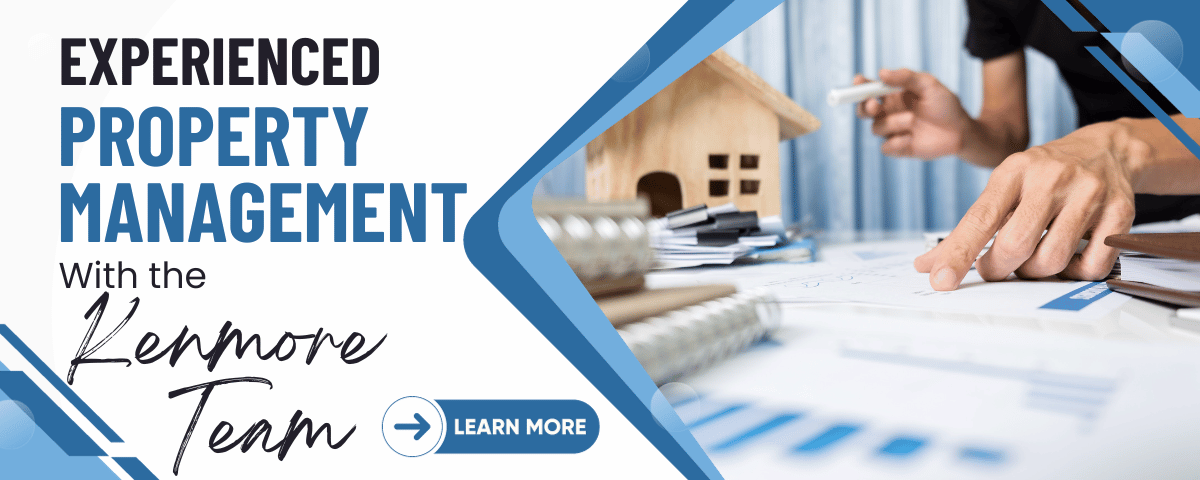There are many reasons a homeowner may want to move. Whatever your reasons, you still have to answer the question: What do you do with your existing home? You might want to consider renting out your home rather than selling it, depending on your financial situation. Here are some things to consider if you’re stuck in the debate between selling and renting.
Should I rent or sell my home?
The home is usually the largest financial asset that most people have, so deciding how to use it should not be taken lightly. Both options have pros and cons. For instance, renting can earn you monthly income in smaller amounts compared to selling. Renting your house will allow you to build equity while home values increase if you can afford it and have another place to live. Consider the following scenarios and decide which is right for you.
Reasons to sell your home
You need cash to buy your next home
Selling is your best option if you need to access the money in your current home before buying a new one. You can then use the proceeds of your sale to pay for your new downpayment. It can be difficult to buy a new house while simultaneously selling your old one. Work with a real estate agent experienced in the process who can guide and assist you.
You’re not interested in becoming a landlord
It can be time-consuming to manage a rental home. You may be handy and capable of making some repairs on your own. Do you have a list of contractors that you can call in an emergency? You may want to consider whether you are willing to be a landlord, or if you would rather pay someone else to do the work.
You can make a substantial profit
Home prices are still high and property values are rising across the country. Selling your home could bring you a windfall depending on the market in your area, how long you have owned it, and how much you paid. Things can be even better if you sell your home quickly since carrying costs will be less. Look at comparable homes in your area to find out how much they sold for.
You may be eligible for a capital gains exemption
If you sell your house for a profit you can exclude from taxes up to $250,000 in capital gains (or $500,000 if you are married and filing jointly). This only applies if the home has been your primary residence at least for two of the past five years.
Reasons to rent your home out
A temporary move
You may decide to rent out your house while you are away. You can feel more secure knowing that you will have a home to return to when you do. And, when you consider closing costs, you may find it cheaper than buying another house.
You can get the rental income
It’s hard to say no to extra income! If you rent your home now and then decide to purchase another with a mortgage in the future, lenders will take into account rental income to determine your loan. Some lenders will only count a part of your rental income as income. You will also be paying two mortgages simultaneously, so you should make sure you can afford it.
Rent demand is high in your area
Your home is in a neighborhood that’s hot and attracting a lot of attention? It is in a highly desirable school district or near a popular vacation spot like a beach. Is your home close to all the amenities of town? Renting is less stressful if you can find a tenant quickly and easily. Investigate the local housing market and find out what rents are charged for similar properties. Speak to a local property management or agent to find out more about rental demand in the area.
You can expect your home value to increase in your area
You can’t predict the future of the housing market with 100% accuracy. Making an educated prediction, however, may still be possible. You might consider renting out your home now, and then selling it later to benefit from the appreciation.
Renting vs. selling your home: What are the costs?
Both renting and selling a house will both incur costs. One important thing to think about is whether or not the income generated by the rental will be enough to cover the property’s mortgage and maintenance.
You can determine the amount of rental income that you are likely to make by comparing the rents charged for similar properties and the costs associated with owning and maintaining your property. You can then determine if you will be able to recoup all of your costs and even make a profit.
Renting a house out can be expensive
- Mortgage: Although you will be earning rental income, the mortgage is still your responsibility. The rent that you earn may or not cover the entire amount. Property taxes are no different.
- Insurance: Landlord’s insurance can cover certain costs such as damage caused to the home or injuries on the property. This policy will cost you approximately 25 percent more than a typical homeowners’ insurance policy, which you will have to pay for.
- Repairs and maintenance: To ensure that the property is suitable for renting, you’ll have to maintain it regularly. Budget at least 1 percent (or more if the property is older) of its value each year for maintenance.
- You’ll need to spread the word in order to find a potential tenant: You should also consider any marketing expenses you might incur, like the cost of an advertisement. You may need to pay to run background and credit checks on potential tenants. However, you could pass these costs onto the tenant.
- Renters’ vacancies: Also, consider the costs of having a vacancy between tenants. You’re losing income if a tenant leaves and you can’t find a replacement.
- Property management fees: Hiring a property manager will make being a landlord easier, but they can also eat into profits. They charge a percentage, usually around 10%.
- HOA fees: If you live in a home that is part of a homeowners’ association, the HOA fee will also apply. The amount depends on what amenities are available.
Selling a house can be expensive
- Agent commissions: For years, the average real estate commission was between 5 and 6% of the home’s selling price. This commission was split equally between the agent for the seller and the agent for the buyer, and paid by the seller. A recent settlement by the National Association of Realtors has changed this. Depending on the agreement, buyers could be responsible for paying directly their agent’s fee as of this summer. A single agent’s commission is still an expensive expense. For example, on a $400,000 deal, 2.5 percent equals $10,000.
- Updating the home: You’ll probably have to pay for a few home improvements to get your house in the best shape possible to sell. You might want to consider a deep clean, landscaping improvements and any repairs that are needed. Paying a professional to stage your house can make it more desirable, potentially increasing its price.
- Closing costs: These are typically incurred by sellers in addition to Realtor commissions. These costs that come up during the closing process include attorney fees, transfer tax, and title insurance.
- Mortgage payoff: If you have a mortgage, a portion of the proceeds from the sale of your home will be used to pay off the remaining loan.
What happens if the economy is in recession?
Some economists predict that a recession will occur in the near future. Ask yourself what a severe economic downturn would mean for your finances before you decide whether or not to sell or rent your home. Is your work stable? Are your savings solid? You may be able to manage two mortgages in a recession or if your rental income is lower than expected. Selling may be a better option if you can’t answer any of these questions.
Bottom line
Consider your financial situation, your lifestyle and the local housing market when deciding whether to sell or rent. Consider the costs involved in both options and whether you plan to return to your home location soon. Also, decide if you want to be a landlord.




